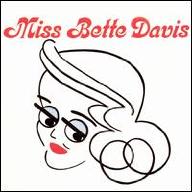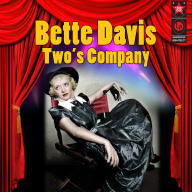In the spring of 1928, she began appearing in plays in summer stock in upstate New York and Massachusetts, sometimes being called upon to sing. She made her professional stage debut in New York in the play +The Earth Between on March 5, 1929, at the Provincetown Playhouse, the equivalent of an off-Broadway theater. Her Broadway debut came in the play +Broken Dishes, which opened on November 5, 1929, for a successful run of 178 performances. In 1930, she was signed to a movie contract by Universal Pictures, and she moved to Los Angeles that December. Universal used her in a series of minor roles, then dropped her in September 1931. But she was signed by Warner Bros. in November and appeared in many films over the next few years, eventually achieving stardom. She received the Academy Award for Best Actress for her role in the 1935 film #Dangerous, and won the award a second time for 1938's #Jezebel. In the latter film, playing the part of a Southern belle in the 1850s, she was heard briefly singing a spiritual, though she was largely drowned out by a chorus.
Davis' real screen debut as a singer came in 1943, when she sang the war-themed Arthur Schwartz-Frank Loesser song They're Either Too Young or Too Old as a special appearance in the all-star film #Thank Your Lucky Stars. Here, and in later instances, while able to carry a tune, she tended to rely on her distinctive speaking voice and phrasing to put the song across, not unlike the approach taken by her peers Katharine Hepburn and Marlene Dietrich. In 1949, she left Warner Bros., after which her work became more varied. In 1952, she took on the starring role in the musical revue +Two's Company, which opened on Broadway on December 15, 1952. The show was popular at first and produced a cast album released by RCA Victor Records, but it was forced to close after 90 performances on March 8, 1953, when Davis became ill because of an infected tooth that led to an operation for the bone disease osteomyelitis.
Davis' next musical appearance came in 1962, when she sang I've Written a Letter to Daddy in the horror film #What Ever Happened to Baby Jane?, for which she earned her tenth Academy Award nomination for best actress. She was then featured on an MGM Records single with singer Debbie Burton (whose voice was also heard in the film) on the movie's title song (which was written for exploitation only and was not used in the film itself). In the thriller #Hush...Hush, Sweet Charlotte, released in late 1964, she sang the title song on-screen. In 1965, she recorded singles for two different record labels. Bell Records released a Davis 45 combining Life Is a Lonely Thing with Mother of the Bride, and Mercury Records issued one with Oh, What It Seemed to Be on one side and Single on the other.
In 1974, at the age of 66, Davis took on the starring role in +Miss Moffat, a stage musical adaptation of the play +The Corn Is Green. Previously, she had appeared in the 1945 film version. The show tried out in Philadelphia in October, but closed before coming to Broadway. The following year, Davis accepted an offer from EMI Records to make an album in London. The result was the LP Miss Bette Davis, on which she reprised songs she had sung earlier in her career and performed songs associated with some of her films, also repeating famous dialogue excerpts from her major movie roles and singing some age-appropriate songs crafted for her.
Also in 1975, singer-songwriter Jackie DeShannon released her recording of Bette Davis Eyes, a song she had composed with lyrics by Donna Weiss, on her album New Arrangement. The words referred to an alluring woman said to share one of the actress' most striking features. The song made little impression at the time, but six years later it was revived by Kim Carnes, whose version spent nine weeks at number one, leading to a Grammy Award for Song of the Year. Davis herself, meanwhile, didn't do any more professional singing, but she continued to act in feature films and television movies until her death from cancer at age 81. ~ William Ruhlmann, Rovi



















